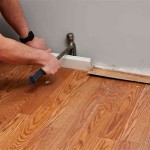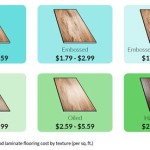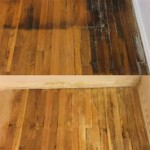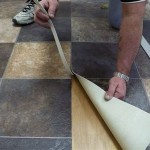Installing Tongue and Groove Laminate Flooring: A Guide to Essential Aspects
Installing tongue and groove laminate flooring can be a rewarding DIY project that can enhance the beauty and value of your home. However, it is essential to approach this task with proper preparation and an understanding of the key aspects involved. This guide will provide you with the necessary knowledge and tips to ensure a successful installation.
Material Selection and Preparation
Choosing the right laminate flooring is crucial. Consider the durability, color, and texture that best suits your needs and style. Measure the area you intend to install the flooring and purchase enough material to account for cuts, waste, and potential mistakes.
Before starting the installation, allow the flooring to acclimate to the room temperature and humidity for at least 24 hours. This helps prevent warping or buckling after installation.
Subfloor Preparation
The subfloor must be level, dry, and free of debris. Inspect the subfloor for any unevenness or damage. Level the subfloor using self-leveling compound or plywood if necessary. Ensure the subfloor is clean and dry before laying the underlayment.
Underlayment provides a moisture barrier and helps reduce noise and impact. Choose an underlayment that is compatible with your laminate flooring and install it according to the manufacturer's instructions.
Starting the Installation
Start the installation along a straight wall. Lay the first row of planks with the tongue facing the wall. Interlock the planks by inserting the tongue into the groove at a 45-degree angle and pressing them together until they lock into place.
For the second row, cut the first plank to fit along the wall and interlock it with the first row. Continue interlocking the planks until you reach the end of the row. Cut the last plank to fit and interlock it as well.
Cutting and Interlocking
Cutting the planks straight and precisely is essential for a professional-looking installation. Use a miter saw or a flooring cutter to make clean cuts. Interlock the planks tightly by using a tapping block and a hammer or a pull bar.
Avoid using excessive force when hammering, as it can damage the locks. Use gentle taps and ensure the planks are fully interlocked before moving on to the next row.
Transitions and Moldings
Where the laminate flooring meets another flooring type or a doorway, you will need to install transitions or moldings. Measure and cut the transition pieces to fit and secure them with nails or adhesive.
Baseboard moldings can be installed around the perimeter of the room to cover the gap between the flooring and the wall. Measure, cut, and attach them using nails or an adhesive.
Finishing Touches
After installing the flooring, clean it thoroughly to remove any dust or debris. Do not use a wet mop, as excessive moisture can damage the laminate. Use a laminate flooring cleaner or a damp microfiber cloth for cleaning.
Follow these essential aspects of installing tongue and groove laminate flooring to achieve a beautiful and durable result that will enhance the value of your home for years to come.

Tongue Or Groove Which To Install First

All You Need To Know About Tongue And Groove Flooring Installation Reallyfloors America S Est Hardwood

Should You Install Tongue And Groove Laminate Flooring Ozburn Hessey

What Is The Tongue And Groove On Laminate Flooring

Pergo Installation Laminate Flooring Sawdust Girl

Installing Laminate Engineered Wood Floating Floors Home Improvement Stack Exchange Blog

How To Install Laminate Flooring The Home Depot

Standard Tongue And Groove Flooring Installation

How To Install Beautiful Laminate Floors In One Afternoon Do It Yourself Fun Ideas

5 Essential Tips For Tongue And Groove Flooring District Floor Depot
Related Posts








